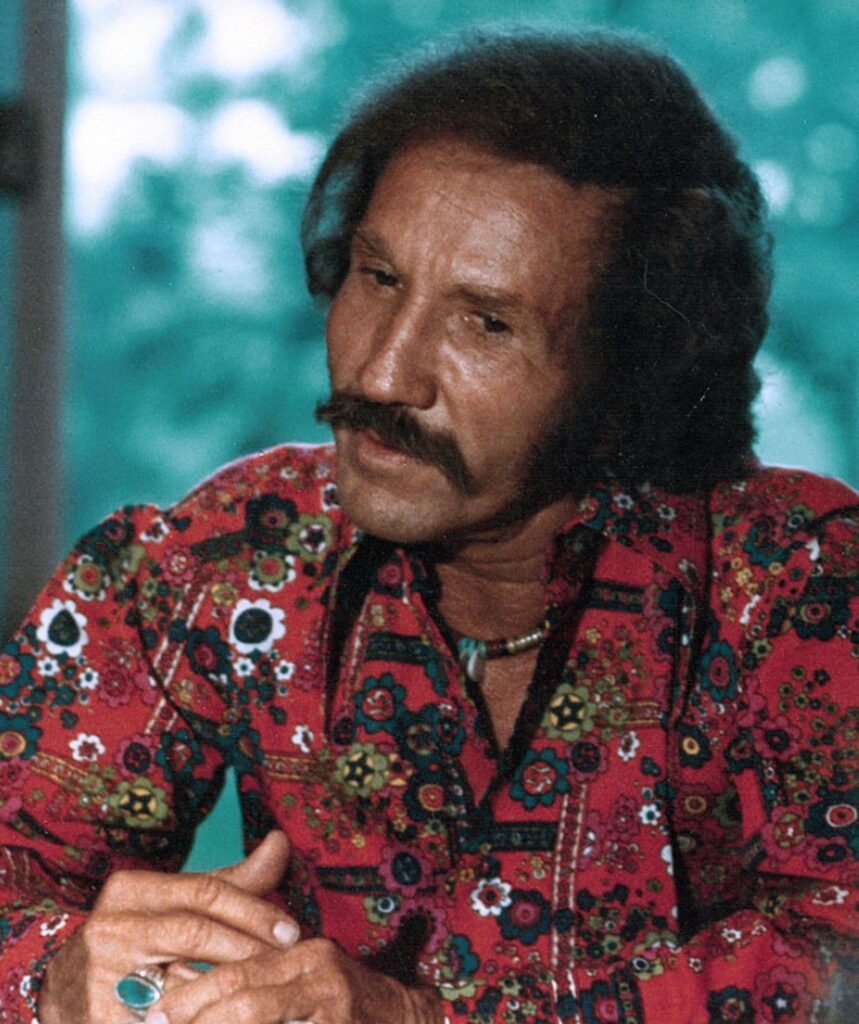
A Haunted Confession That Clean Hands Can Still Be Dirty
When Marty Robbins sings “I Washed My Hands in Muddy Water,” he’s not just recounting a personal lament — he’s channeling a timeless moral reckoning. Though Robbins never released this track as a major chart single under his own name, it occupies a haunting place in his catalog as one of the few times he interpreted Joe Babcock’s gritty tale of crime, redemption, and inescapable guilt. The song itself first rose to prominence in Stonewall Jackson’s 1965 single, which climbed to No. 8 on the Billboard Hot Country Singles chart.
In the opening lines, Robbins (like Jackson before him) roots the story in the deep South — Macon, Georgia, where the narrator’s father is jailed, and his words of wisdom echo with heavy irony. “If you keep your hands clean,” the old man warns, “you won’t hear them bloodhounds on your trail.” But innocence proves fragile. The protagonist falls in with “bad companions,” robs a man in Tennessee, and ends up incarcerated in a Nashville jail. The harsh arc of the narrative is immediately cinematic; this is no simple country ballad — it’s a morality play, wrapped in regret.
The chorus provides the emotional and moral anchor: “I washed my hands in muddy water … but they didn’t come clean.” Here, Robbins—through his plaintive, weathered voice—captures the futility of trying to purify a soul stained by one’s own decisions. The “muddy stream” is not just literal water, but a metaphor for past choices, an inescapable current that one can scrub and scrub, but never truly cleanse.
Musically, the song leans on simple, instinctive country harmonies — the classic cadence built on G, D⁷, G⁷, and C, as transcribed in guitar chord charts. But it’s the emotional weight that carries it: Robbins’ delivery is both resigned and resolute, as though he understands that escape from one’s guilt isn’t a matter of force, but of carrying a burden until the end of one’s days.
Although Robbins was far better known for his sprawling western ballads like El Paso and tender declarations such as My Woman, My Woman, My Wife, his recording of “I Washed My Hands in Muddy Water” reveals another facet of the man — a storyteller who didn’t just romanticize the West, but grappled with the very real, unglamorous pangs of moral failure. Setlist records show he performed it live at least once (on October 23, 1979, in Austin), indicating that the song held lasting meaning for him.
On a deeper level, Robbins’ version is a meditation on redemption’s limits. The lyrics speak of breaking out of jail, crossing the Georgia line, and yet still hearing the metaphorical bloodhounds on the trail. There’s no triumphant reformation here — only the awareness that some stains resist even the most earnest attempts to wash them away.
In the wider culture, the song has proven remarkably fertile: it’s been covered by everyone from Elvis Presley (on Elvis Country, 1971) to George Thorogood & the Destroyers. That legacy underscores the song’s core strength: its universal portrait of human frailty, the way our past follows us, and how sometimes what we do to cleanse ourselves can feel like nothing more than a ritual — one performed in muddy water.
As The Vinyl Archivist, I hear in Robbins’ rendition a solemn truth: no matter how hard we try, we can’t always wash away who we’ve been. And when the hands don’t come clean, the only thing left is acceptance — or, perhaps, the hope that one day the “muddy stream” might run clear.